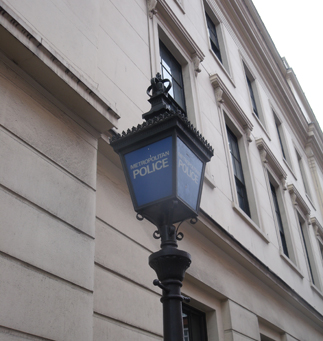It’s too easy for the wrong people to join and stay in the police, according to official inspectors.
In a review of 725 police vetting files and 264 complaint and misconduct investigations, His Majesty’s Inspectorate of Constabulary and Fire & Rescue Services (HMICFRS) says it found too many cases where people should not have been allowed to join the police. That included officers with criminal records or links to organised crime. Incidents which should have been assessed as gross misconduct were assessed as misconduct only, or not treated as misconduct at all.
The inspectorate concluded that a culture of misogyny, sexism and predatory behaviour towards female police officers and staff and members of the public still exists and is even prevalent in many forces.
Vetting decision-makers should use information from applicants’ social media accounts more effectively, the report urged. As part of the Conservative Government’s ‘uplift’ of recruitment of extra officers, police are trialling use of a commercially available social media analytical tool, towards automating scrutiny of applicants’ social media profiles.
Worryingly, according to the inspectors, none of the files they reviewed containing concerning information about an applicant’s use of social media resulted in their vetting application being rejected. Sometimes forces didn’t include any reference to this social media content in their decisions.
As for that uplift, inspectors found some forces’ staffing in vetting units falling short of what was required to meet demand, and workloads ‘no longer manageable’. Or, units are falling behind with other work, such as vetting renewals.
His Majesty’s Inspector of Constabulary Matt Parr said: “It is too easy for the wrong people to both join and stay in the police. If the police are to rebuild public trust and protect their own female officers and staff, vetting must be much more rigorous and sexual misconduct taken more seriously.
“We found evidence of poor decision-making in police vetting, inconsistent handling of misconduct cases and a lack of effective monitoring of officers’ IT use, all of which can lead to devastating consequences. Yet despite repeated warnings – including several from us – not enough has been done to improve standards and stamp out misogyny and predatory behaviour in policing.
“The police must do more to prevent unsuitable people from joining in the first place, identify any misconduct within the force, and quickly dismiss officers and staff if they are not fit to serve the public.
“Given the risks involved with recruiting officers at the scale and speed required by the uplift programme, it is essential that police leaders act now on our recommendations. Our report highlights that they simply cannot afford to wait any longer.”
Comments
For the National Police Chiefs’ Council, NPCC chair, Martin Hewitt said: “Chief constables, supported by national bodies, will act on these recommendations and put the problems right because we cannot risk predatory or discriminatory individuals slipping through the net because of flawed processes and decision-making.”
For the rank and file police body the Police Federation of England and Wales (PFEW), National Chair Steve Hartshorn said that what is not covered in the report is the number of officers with non-disclosure orders imposed on them, who have been silenced by their force from speaking out. “To bring about further positive change, PFEW will be campaigning for forces not to utilise non-disclosure orders to ensure learning, openness and transparency.”
Mr Hartshorn added: “There is no place in policing for misconduct and we condemn any dishonest or inappropriate behaviour which taints the reputation of our incredible police service. The vast majority of police officers work tirelessly with dedication and professionalism under extremely demanding circumstances to keep us safe, and they act with integrity and respect.
“The report rightly points out ‘the majority of police officers and staff meet – and often exceed – the standards of behaviour the public have a right to expect’.
“From the early stages of the uplift programme we saw cracks begin to emerge with vetting processes as chief officers were put under pressure from the Government to hit their uplift programme recruitment targets. It is important this problem has finally been acknowledged publicly as it cannot continue.”
Background
The then Home Secretary Priti Patel commissioned HMICFRS to assess current vetting and counter-corruption capacity and capability in policing across England and Wales. This was to include forces’ ability to detect and deal with misogynistic and predatory behaviour, after the murder of Sarah Everard by a serving Met Police officer. You can read the report at the HMICFRS website. Included were arrangements for transferees, whistle-blowing and the work of counter-corruption units in the police.
Meanwhile, the Metropolitan Police appointed Baroness Louise Casey to lead an independent review of Met culture and standards of behaviour; work is expected to finish by February 2023. For Baroness Casey’s interim report visit the Met website.










